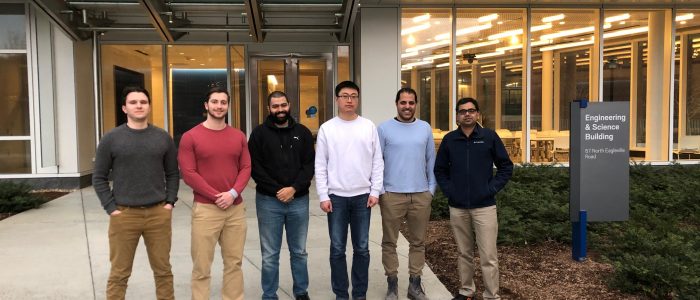Robotics and Controls Lab
| Phone: | (860)-486-3673 |
|---|---|
| Address: | Engineering and Science Building Storrs, CT 06269-4031 |
About Us
Robotics and Controls group in the Electrical and Computer Engineering department at UCONN works on fundamental problems in control systems and estimation with applications to autonomy, space and manufacturing robotics. The main focus is to develop controls and estimation tools for systems in the research topic areas of machine learning for control/learning from demonstration, human-robot collaboration and perception. The group philosophy is to integrate research, education and outreach to build a sustainable ecosystem for advancing state-of-the-art in controls and robotics.
Recent News
- Vrithik's paper is accepted for publication in IEEE Transactions on Mechatronics
- Rounak's journal paper is published in IEEE Control System Letters
- Ghananeel, Iman graduated with PhD degrees in 2023 and Alexander graduated with MS thesis option. Congratulations!
Notice for new graduate students: If you are interested in working in my lab, you should apply to UConn graduate school. Don't contact me via email. We are always looking for motivated students with good academic background to join our group.
